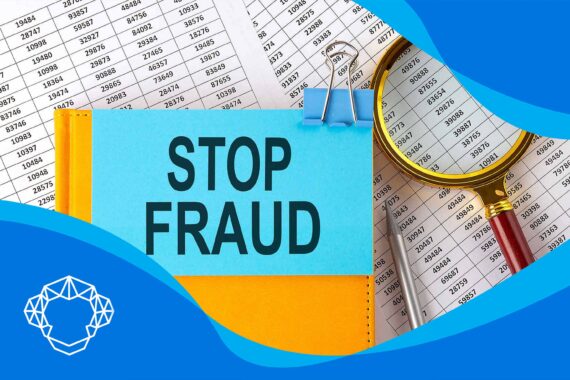Did you know that there are more than 14.4 billion credit cards in the world and about 160 million consumers in the US with at least one? Apart from drawing new potential clients, applying for a merchant account will give your existing customers another way to pay for your services, thus giving your enterprise an edge over the competition. Figure out the fees, rates, and penalties, find a reliable processor, gather all the necessary information, and the application process will go smoothly.
Start Accepting Credit Cards By Getting an Account
When entrepreneurs want to start accepting credit and debit card payments, the first step they need to take is to open a merchant account. But you may wonder, what is a merchant account?
It’s easier to look at it more like a line of credit than a typical bank account since the owner’s personal credit is an important requirement for opening one. And same as other lines of credit, they have their rates, limits, and other different provisions.
With this type of account, a business needs to partner up with an acquiring bank that is actually enabling all communication in electronic payment transactions. Acquirers act as middlemen between the merchant and a customer’s issuing bank, and they ensure that funds are transferred properly between different accounts owned by various players in the process. Acquiring bank is dealing with sensitive customer’s information, and it assumes some of the financial risks associated with cashless payments. That’s why they use fees to protect themselves against liability.
Additionally, it’s vital to know the difference between acquirers and payment processors. Merchants interact with processors more directly, since they are obtaining and processing all card information during the transaction. They also are the suppliers of software and hardware tools, they provide a connection to payment gateways and play an integral role in the authorization process.
Requirements You Need to Fulfill Before Applying for a Merchant Account
Depending on the processor you choose, there will be a list of requirements you need to fulfill before you can apply. However, there are some underlying conditions you should meet no matter the processor:
- Own or co-own a firm
- Your enterprise should be legal
- Have a bank account where the funds can be deposited
There are some additional criteria some processors expect you to meet:
- You should provide financial statements
- License and employer identification number
- History of processing
- Statistics about your site visits
Just to be on the safe side, ask your processor about any additional information regarding your application.
Get to Know Rates and Fees
Serious entrepreneurs should know that different types of accounts come with different costs. When your enterprise accepts a credit or debit card, you are expected to pay a fee. To pay as little as possible, you should be able to understand credit card transaction fees and rates and how you can negotiate them with your processor.
Interchange and assessment fees make up for what is known as non-negotiable credit card processing costs, but what you can discuss is the processor’s markup. This includes monthly and yearly charges, volume markup, per transaction, and batch fees. Go over the average credit card processing fees and see how much you are expected to pay.

Obtain All the Information About Your Business Before Applying for a Merchant Account
There are particular pieces of information you should provide to apply, and they will almost always include:
- Average transaction ticket (also known as transaction total)
- Maximum expected ticket
- Average volume
- Transaction percentages
If you are already accepting cards, your new processor will probably request processing statements. Bank statements as well, but that depends on the industry. If you are in one of the high-risk industries, there’s a chance that you will have to provide all of this information.
Declaring correct figures is crucial because it will affect the terms of your account. If you fail to report the accurate figures, processors might turn down your requests or even shut down your account.

Small Business Owners Should Know What Volume and Tickets Are
All entrepreneurs should know how to calculate the volume and average ticket before applying for merchant accounts. But before that, you should know what volume and tickets actually are:
- Processing volume is set by your processor, and it points out how much you can charge on credit cards in a month.
- The average ticket is a rough guess of how much money your business will process per card sale. In contrast, the highest anticipated ticket is the highest payment you anticipate for a single card sale.
Processing Volume Depends on the Type of Business
If you already have an established business, it will be easier to determine the monthly volume by going through your past statements. The best way to figure out the limit for new enterprises is to make an educated guess.
Go over everything from seasonal swings and variations to development strategies. If you own an online or mail-order company, assume that more than 90% of your sales will be executed through cards, while if you have retail, that percentage can fall somewhere between 30 and 40%.
Calculating the Average Ticket Is Easy
The type of service or products you are selling will dictate the average ticket amount. When you have a business plan, it will be easy to make an educated guess about the lowest and highest possible transactions. When you know these, it will be easy to find the average sale amount. For example, let’s say you run a coffee shop. Your average receipt will be around $5, while if you own a gym, that sum will be around $50.

Sometimes, You Will Need to Change Your Processing Volume or Average Ticket
When you start processing, you might come to realize that your business is booming and that you have underestimated the volume or average ticket figures. Contact your processor as soon as possible and go over your options. Trustworthy processors will more often than not offer to raise your limit, or take other actions to help you avoid delays and penalties.
As Your Business Grows, You Will Have to Increase the Processing Limit
When your sales increase and your business starts to grow, you will need your limit raised. Most processors understand that, with business growth, there is an increase in card sales as well. To be completely sure how the whole procedure goes, contact your processor and go over your options.

Avoid Common Mistakes and Penalties
Before getting approved, learn what the common penalties are and how you can avoid them. Read through your merchant processing agreement (MPA) before you sign it because it is a legal document that defines the rules of your engagement with processors. You are now partners, and knowing what the boundaries and regulations are will make it easy to follow them and avoid common mistakes:
- Track your sales and remember your limit – this way, you will prevent going over the limit and having to increase it.
- Keep in mind your average ticket amount – as with sales, you should track your limits and avoid the risk of penalties that crossing it might bring.
- Go over the statement you receive every month – this is important because merchants will let you know about important changes, and you don’t want to miss those.
Paying attention to details is a sign of a successful business owner. That’s why you should dedicate some time to learn how you can avoid penalties. In the end, it will be well worth it.

The Final Step Is Getting You Approved
You are almost at the end of the road. With an experienced card processor, the whole approval process can take a few workdays. However, if your firm is in a high-risk industry, it might take a little longer. Also, to speed up the process, provide all the needed information, and there won’t be any delays or sidetracking along the way. When you get approved, all that is left is for you to do is set up a merchant account and get your enterprise to the next level.







